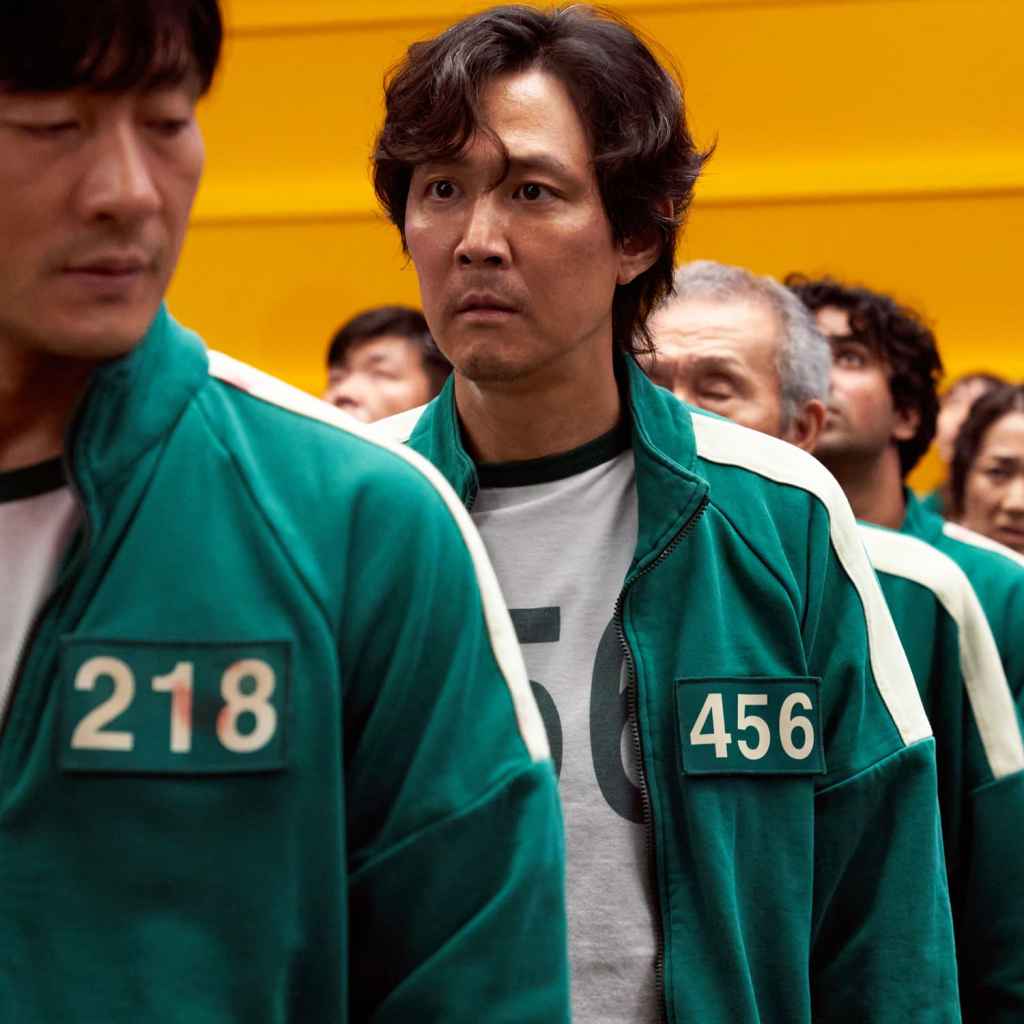Image Source: Netflix
The opening notes of Johann Strauss II’s “The Blue Danube” will forever have me on the edge of my seat thanks to Netflix’s nail bite-worthy Korean drama, Squid Game. Minutes into the first episode, hundreds of players flood the arena of a remote experimentation facility, where they’re lured into participating in a series of life-or-death children’s games for a 45.6 billion won (about $38 million) cash prize. Violent and grotesque, each game tests the strength of the players, challenging them to bet their lives to repay their extensive financial debts.
At the heart of each episode is the story of Seong Gi-hun, aka player 456, a chauffeur with a gambling problem who hopes to win the competition to pay off his mom’s medical bills and be closer to his daughter. Amid death and emotional destruction, one of the biggest changes Gi-hun makes in the series is the spur-of-the-moment decision to dye his hair an uncharacteristic, fiery red, leaving viewers puzzled about the significance behind his new hairdo. But a closer look at his story reveals a powerful double meaning behind the new look.
At the start of the competition, Gi-hun and the other players face off in a fatal game of Red Light, Green Light, in which he barely makes it out alive. As the challenges progress, the games become more difficult, weighing a heavy physical, emotional, and mental toll on everyone involved. With tensions high, alliances crack and players resort to lying, cheating, and literally stabbing each other in the backs to get what they came for.
“I imagined being him and thought to myself, ‘What is the color that you would never choose to dye your hair?'”
Against the odds, Gi-hun is the only player who manages to make it out of the competition alive. Devastated by his experience, he returns home to find his mother dead and his daughter gone. With all he fought for out of reach, Gi-hun leaves his fully-loaded bank card from the competition untouched for a year, growing out a shaggy beard and mustache and living exactly as he did before the games. After a chilling meeting with Oh Il-nam, the man behind the games, Gi-hun is able to fully process his grief and keeps his promises to help Song Sae-byeok’s little brother and Cho Sang-woo’s mother, giving them half of his prize money.
It’s around this time that Gi-hun makes his big hair transformation, which director Hwang Dong-hyuk explained in an interview with Zapzee is a reflection of his inner rage. “I thought about this intuitively, thinking about how Gi-hun should change his hair in a hair salon,” he said. “I imagined being him and thought to myself, ‘What is the color that you would never choose to dye your hair?’ Then I came to the conclusion that Gi-hun would never dye his hair red. It would be the [most unexpected] thing for him to do. So I chose the color and I thought it really showed his inner anger.”
Considering that red hair dye was a huge trend over the summer, you don’t exactly have to have a harrowing life experience to incorporate the color into your look. But for Gi-hun, the move was completely unexpected and serves as a powerful symbol for the rage burning inside him after being subjected to such brutal torture.
In the final moments of the series, Gi-hun, ready to move to America to be with his daughter and start a new life, is unable to leave after witnessing another man be recruited for the annual Squid Game competition. Realising that the games won’t end unless someone tries to stop them, he misses his flight and stays in South Korea. Gi-hun’s fate seems pretty open-ended by the end of the show, but it’s clear that the game has sunken its claws into him for good, and even though he’s won, there’s never really an escape. In this case, the “red light” – aka his hair – signifies his inability to move forward after all he’s experienced.
We still don’t know whether a second season of Squid Game is on the horizon, but if there is, we hope Gi-hun – red hair or not – returns to put an end to the games for good.

